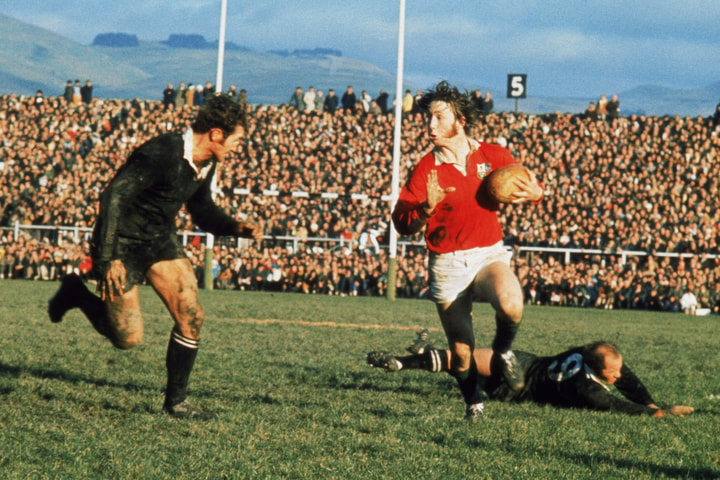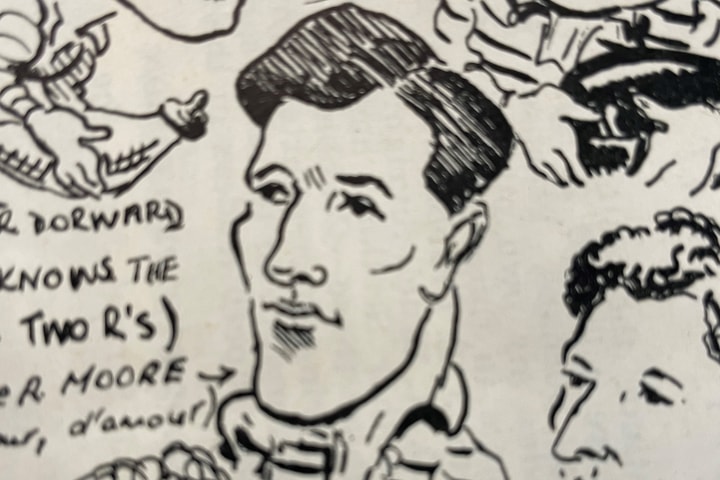Earlier this year, we were able to show for the first time what we believe to be the oldest footage of an international rugby test-match in existence. It was a match, held at Twickenham, between England and France. It was France's first match at the stadium, which had opened only the season before.
The footage (below) shows the teams running out of the player's tunnel and most of the players have been identified. The great cloud that hangs over our analysis of the lives of most of these men is the Great War that would be declared just three years later. As men of fighting age, most of the players would go on to enlist and serve with the French and British armed forces.
Catching the ball for England, before passing it back to his teammate is the stocky figure of John Abbott King. King, better known as Jack, was born in Leeds on 21st August 1883. He played rugby for Headingley and Yorkshire and was a crowd favourite at both for his ferocious tackling, composed distribution and never-say-die attitude.







